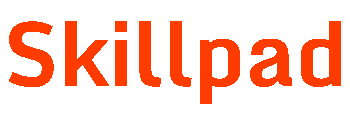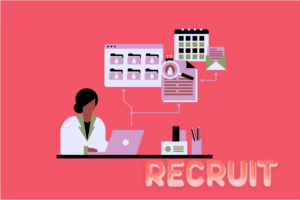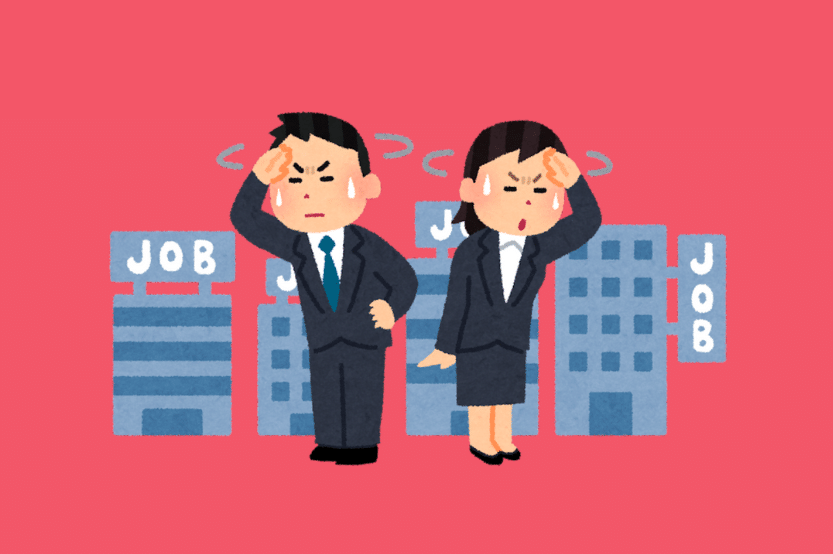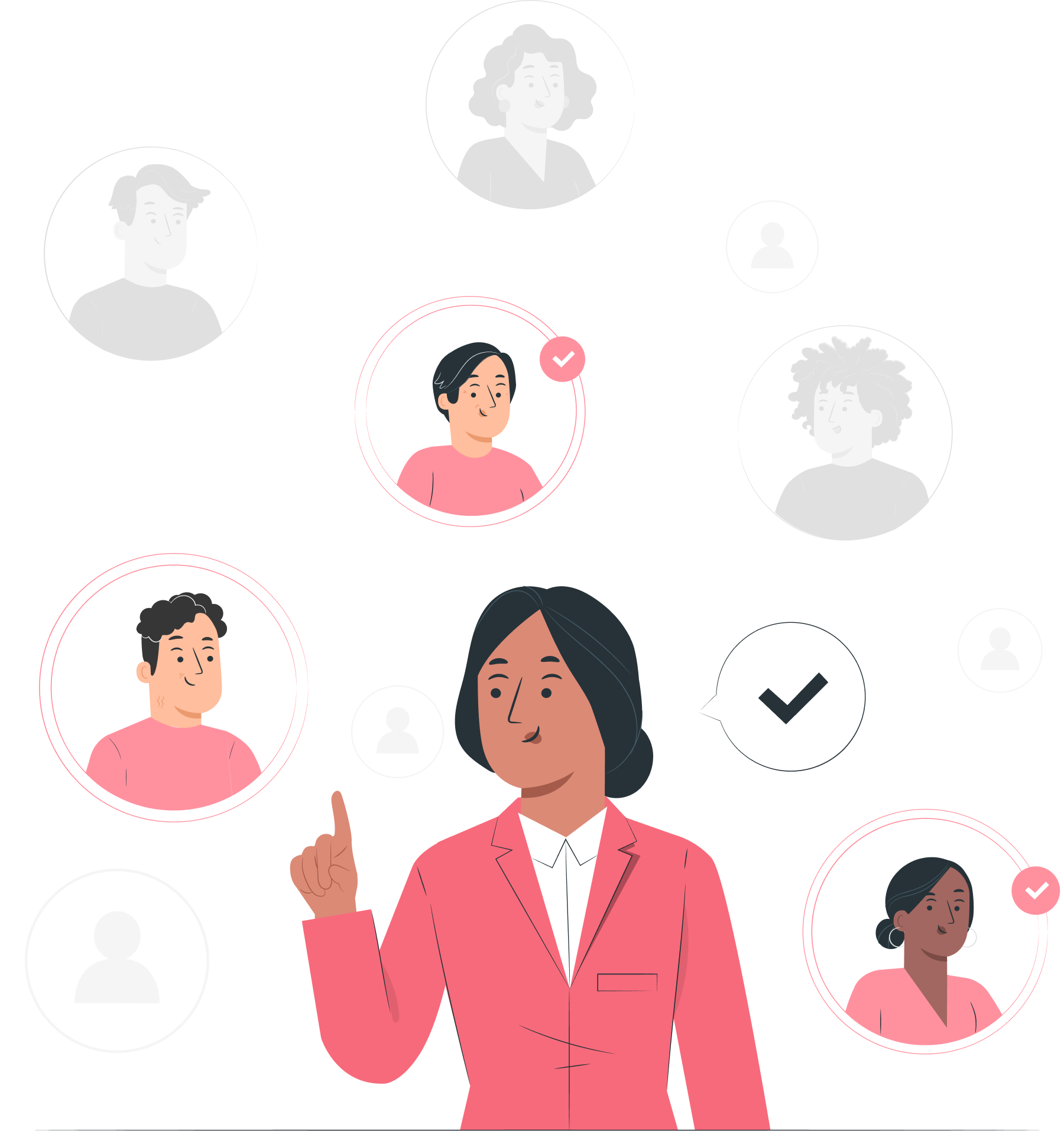Behavioural interview questions have become increasingly popular among hiring managers and recruiters in recent years. They are designed to help assess a candidate’s past behaviour in order to predict how they will perform in future roles. Behavioural interview questions can be tricky to answer, as they require you to draw on your own experiences and provide specific examples.
In this blog, we will go over everything you need to know about answering behavioural interview questions, including 15 sample questions with answers, tailored for roles such as Marketing Executive or Business Analyst. You can consider the same format for any other roles too.
What are behavioral interview questions?
Behavioural interview questions are questions that are designed to elicit specific examples of how a candidate has behaved in the past. The theory behind these questions is that past behaviour is the best predictor of future behaviour. By asking candidates to describe specific situations, actions, and outcomes from their past experiences, hiring managers can gain insight into how they will perform in a new role.
Behavioural interview questions typically begin with phrases such as “Tell me about a time when…”, “Describe a situation where…”, or “Give me an example of…”. These questions can be challenging to answer, as they require candidates to draw on their own experiences and provide specific, detailed answers.
Why do employers use behavioral interview questions?
Employers use behavioral interview questions for several reasons. First, they help to assess a candidate’s skills and abilities in a more concrete way than traditional interview questions. Instead of simply asking a candidate if they have a particular
skill, behavioral interview questions ask them to provide specific examples of how they have used that skill in the past.
Second, behavioral interview questions can help to assess a candidate’s fit with the company culture. By asking candidates to describe how they have handled situations in the past, employers can gain insight into their values, work style, and communication skills.
Finally, behavioral interview questions can help to identify potential red flags in a candidate’s past behavior. For example, if a candidate describes a situation where they were dishonest or unethical, this could be a warning sign for a hiring manager.
How to prepare for behavioral interview questions
Preparing for behavioral interview questions requires some advance preparation. Here are a few tips to help you get ready:
- Review the job description and make a list of the key skills and abilities required for the role.
- Tailor your resume and have an impressive portfolio.
- Think about your own experiences and identify situations where you have demonstrated those key skills and abilities.
- Practice describing those situations using the STAR method (more on this below).
- Prepare a list of questions to ask the interviewer about the role and the company.
- Research the company and the industry to gain a better understanding of the company culture and values.
- Dress appropriately and arrive on time for the interview.
What is STAR Method?
The STAR method is a framework used to answer behavioral interview questions.
STAR stands for
- Situation: Describe the situation or problem you were faced with.
- Task: Describe the task or goal you were trying to achieve.
- Action: Describe the specific actions you took to address the situation or achieve the goal.
- Result: Describe the outcome of your actions.
Using this method helps you provide a structured, detailed answer that demonstrates your skills, experience, and problem-solving abilities. The STAR method is widely used to answer behavioral questions and can help you stand out as a candidate by showing the interviewer how you approach and solve problems. By using the STAR method, you can provide a clear, concise answer that highlights your skills and abilities.
Sample behavioral interview questions for Marketing Executive or Business Analyst roles
1. Tell me about a time when you had to develop a marketing strategy from scratch.
- Situation: In my previous role as a Marketing Executive, I was tasked with developing a marketing strategy for a new product launch.
- Task: My goal was to develop a strategy that would effectively reach our target audience and drive sales.
- Action: I began by conducting market research to gain a better understanding of our target audience and the competitive landscape. Based on that research, I developed a messaging framework and identified the most effective channels for reaching our audience. I also worked with the product team to ensure that our messaging was aligned with the product features and benefits.
- Result: The marketing campaign was a success, with sales exceeding our initial projections by 25%. I received recognition from my manager and the executive team for my contribution to the launch.
- Describe a situation where you had to analyze data to make a business decision.
- Situation: In my previous role as a Business Analyst, I was tasked with analyzing data to determine the most effective pricing strategy for a new product line.
- Task: My goal was to identify the optimal price points for the new products based on market demand and competitive pricing.
- Action: I began by conducting a thorough analysis of sales data from similar products in the market. I also surveyed customers to gauge their willingness to pay for the new products. Based on that research, I developed a pricing model that took into account the costs of production and the desired profit margins.
- Result: The pricing strategy was successful, with the new products selling well and generating a profit for the company. I received recognition from my manager and the executive team for my contribution to the project.
- Tell me about a time when you had to collaborate with a team to achieve a common goal.
- Situation: In my previous role as a Marketing Executive, I was part of a team that was tasked with developing a marketing campaign for a new product launch.
- Task: Our goal was to develop a campaign that would effectively reach our target audience and drive sales.
- Action: I worked closely with the other members of the team, including the
- product team, the creative team, and the digital team, to develop a cohesive campaign that would resonate with our audience. We held regular meetings to ensure that everyone was aligned on the messaging and the tactics we would use to reach our audience.
- Result: The campaign was a success, with sales exceeding our initial projections by 30%. The team received recognition from our manager and the executive team for our collaboration and teamwork.
- Describe a situation where you had to resolve a conflict with a coworker or client.
- Situation: In my previous role as a Business Analyst, I was working with a client who was unhappy with the progress of the project.
- Task: My goal was to resolve the conflict and get the project back on track.
- Action: I scheduled a meeting with the client to discuss their concerns and gather feedback on what they felt was going wrong. I listened carefully to their feedback and worked with my team to address their concerns. We provided regular updates on the project and made changes as needed to ensure that the client was satisfied with our progress.
- Result: We were able to resolve the conflict and complete the project on time and within budget. The client was happy with the final product, and we received positive feedback from them and our manager.
- Tell me about a time when you had to adapt to a new technology or software.

- Situation: In my previous role as a Marketing Executive, I was tasked with implementing a new marketing automation software.
- Task: My goal was to learn the new software and integrate it into our existing marketing processes.
- Action: I began by taking online courses and attending training sessions to learn the software. I also worked with the IT department to ensure that the software was properly installed and configured. Once I was comfortable with the software, I began integrating it into our marketing processes, working closely with the digital team to ensure that our campaigns were properly executed.
- Result: The new software was successfully integrated into our marketing processes, streamlining our campaigns and improving our ability to track and measure results. I received positive feedback from my manager and the executive team for my role in the implementation.
- Describe a situation where you had to think creatively to solve a problem.
- Situation: In my previous role as a Business Analyst, I was tasked with finding a solution to a problem that had stumped my team for weeks.
- Task: My goal was to find a solution that would meet our business requirements and be feasible to implement.
- Action: I took a step back and looked at the problem from a different angle, approaching it with a creative mindset. I brainstormed with my team and solicited feedback from colleagues in other departments. Together, we came up with a solution that was innovative and met all of our requirements.
- Result: The solution was successful, and the project was completed on time and within budget. My manager and the executive team praised me for my creative thinking and problem-solving skills.
- Tell me about a time when you had to manage multiple projects or tasks simultaneously.
- Situation: In my previous role as a Marketing Executive, I was responsible for managing multiple campaigns simultaneously.
- Task: My goal was to ensure that each campaign was executed successfully and achieved its objectives.
- Action: I prioritized my tasks based on the urgency and importance of each campaign. I also delegated tasks to members of my team to ensure that everyone was working efficiently. I used project management software to track the progress of each campaign and ensure that nothing fell through the cracks.
- Result: All of the campaigns were executed successfully, and we achieved our objectives for each one. My manager and the executive team praised me for my ability to manage multiple projects simultaneously.
- Describe a situation where you had to make a difficult decision.
- Situation: In my previous role as a Business Analyst, I was tasked with recommending a course of action for a project that was over budget and behind schedule.
- Task: My goal was to recommend a solution that would allow us to complete the project successfully while minimizing costs and time.
- Action: I analyzed the project’s progress and identified areas where we could cut costs and streamline processes. I also consulted with my team and other stakeholders to ensure that the proposed solution was feasible and aligned with our business objectives.
- Result: The recommended solution was implemented, and the project was completed successfully within the original timeline and budget. My manager and the executive team praised me for my ability to make tough decisions and keep the project on track.
- Tell me about a time when you had to take a risk.
- Situation: In my previous role as a Marketing Executive, I recommended a new marketing campaign that was outside of our usual tactics.
- Task: My goal was to increase brand awareness and drive sales.
- Action: I proposed a bold new campaign that involved partnering with a popular influencer to promote our product. The campaign was a departure from our usual tactics, but I believed that it would be effective in reaching our target audience.
- Result: The campaign was a huge success, driving record sales and significantly increasing our brand’s social media presence. The executive team praised me for taking a risk and thinking outside the box, which ultimately paid off.
- Tell me about a time when you had to work with a difficult team member.
- Situation: In my previous role as a Business Analyst, I was working on a project with a team member who had a reputation for being difficult to work with.
- Task: My goal was to find a way to work collaboratively with this team member to ensure the success of the project.
- Action: I approached the team member with a positive attitude, and I made a concerted effort to listen to their concerns and opinions. I also made sure to communicate clearly and openly, addressing any issues or conflicts as they arose.
- Result: By working collaboratively with the difficult team member, we were able to successfully complete the project on time and within budget. I received positive feedback from my manager and colleagues for my ability to work well with all types of personalities.
- Describe a situation where you had to lead a team to achieve a goal.
- Situation: In my previous role as a Marketing Executive, I was tasked with launching a new product line.
- Task: My goal was to lead my team in executing a successful product launch that would generate buzz and drive sales.
- Action: I assembled a team of marketing professionals with a diverse range of skills and backgrounds, and I worked closely with them to develop a comprehensive marketing strategy. I set clear goals and expectations for each team member and delegated tasks according to their strengths and expertise.
- Result: The product launch was a huge success, generating significant buzz and driving sales. My team received praise from the executive team for their hard work and dedication, and I received positive feedback for my leadership skills.
- Tell me about a time when you had to handle a difficult customer.
- Situation: In my previous role as a Business Analyst, I received a complaint from a customer who was dissatisfied with our product.
- Task: My goal was to address the customer’s concerns and resolve the issue to their satisfaction.
- Action: I listened carefully to the customer’s complaint and empathized with their frustration. I then worked with the customer to identify a solution that would meet their needs and address their concerns.
- Result: The customer was satisfied with the resolution, and I received positive feedback from my manager and colleagues for my ability to handle difficult situations with grace and professionalism.
- Describe a situation where you had to work under pressure to meet a deadline.
- Situation: In my previous role as a Marketing Executive, I was tasked with creating a comprehensive marketing plan for an important industry event.
- Task: My goal was to develop a marketing plan that would generate interest in our company and drive sales.
- Action: I worked tirelessly to develop a comprehensive marketing plan that included social media campaigns, email marketing, and event sponsorships. I worked closely with my team to ensure that all tasks were completed on time and to the highest standard.
- Result: The marketing plan was successful in generating interest and driving sales, and the industry event was a huge success. My manager and colleagues praised me for my ability to work well under pressure and deliver high-quality results on time.
- Tell me about a time when you had to adapt to a new situation.
- Situation: In my previous role as a Business Analyst, I was assigned to work on a project that was outside of my area of expertise.
- Task: My goal was to quickly get up to speed on the project requirements and provide valuable insights to the team.
- Action: I took a proactive approach to learning about the project, including researching industry trends, attending training sessions, and consulting with subject matter experts. I also asked questions and sought feedback from my team to ensure that I was on the right track.
- Result: My efforts paid off, and I was able to quickly adapt to the new situation and provide valuable insights to the team. The project was completed on time and within budget, and I received positive feedback from my manager and colleagues for my ability to quickly adapt to new situations.
- Describe a time when you had to deal with a difficult co-worker or customer.

- Situation: In my previous role as a Marketing Executive, I had to work closely with a difficult coworker who was known for being confrontational and challenging to work with.
- Task: My goal was to find a way to work collaboratively with this coworker to ensure that our marketing campaigns were successful.
- Action: I made an effort to build a rapport with this coworker by listening to their concerns, acknowledging their ideas, and finding common ground. I also made sure to communicate clearly and respectfully, even in challenging situations.
- Result: Over time, my efforts paid off, and I was able to build a positive working relationship with this coworker. We were able to collaborate effectively on marketing campaigns and achieve great results. I also learned the importance of communication and building relationships, even in challenging situations.
Parting thoughts:
- Be specific: When answering behavioral questions, it’s important to be as specific as possible. Use examples from your past experiences to illustrate your skills and abilities. Give details about what you did, how you did it, and what the outcome was.
- Follow the STAR method: The STAR method (Situation, Task, Action, Result) is a helpful framework for answering behavioral questions. Start by describing the situation, then describe the task you had to complete, the actions you took, and the results you achieved.
- Highlight your skills: Behavioral questions are designed to test your skills and abilities, so be sure to highlight them in your answers. For example, if you’re asked to describe a time when you had to work under pressure, highlight your ability to prioritize tasks, manage your time effectively, and stay focused under stress.
- Use positive language: When answering behavioral questions, be sure to use positive language. Focus on your achievements and successes rather than your failures or mistakes. Use phrases like “I was able to” and “I achieved” to convey confidence and competence.
- Practice, practice, practice: The more you practice answering behavioral questions, the more confident and comfortable you’ll feel in an interview. Try practicing with a friend or family member, or record yourself answering questions and review your responses.
- Remember, the goal of answering behavioral questions is to demonstrate your skills, abilities, and experiences in a way that is relevant to the job you’re applying for. By following these tips and practicing your responses, you’ll be well on your way to acing your next interview.
Looking for personalised guidance to ace your interviews? Talk to our expert coaches at Skillpad to land your dream tech job today!












